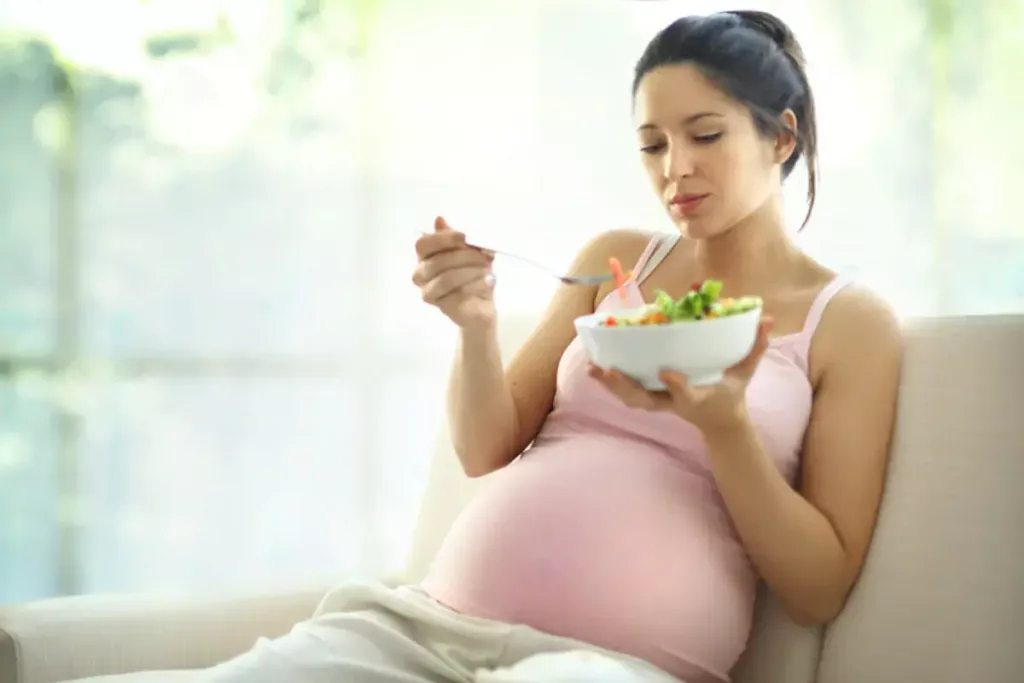Pregnant Women Should Be Aware Of The Delta Variant
Nikki Attkisson | Last Updated : August 2, 2021In some countries, health officials are raising concerns about the risk of Covid-19 to pregnant women due to the Delta variant.
A joint statement from the country’s top health officials encouraged pregnant women to get their coronavirus vaccine. According to new data, 98% of expectant mothers admitted to hospitals in the country since May had not been vaccinated against Covid-19.
The World Health Organization (WHO) has also previously warned that pregnant women affected by Covid-19, as compared to uninfected women of a similar age, are at greater risk for developing severe symptoms.
Compared to the earlier variants of the virus, the Delta strain seems to be more contagious and capable of causing more severe disease, raising concerns among some that the risk might be even greater. You need to know this.
Pregnant Women Should Be Aware Of The Delta Variant
Does Delta pose a greater risk to pregnant women?
Pregnant women and people with the Delta variant are more susceptible to disease, which causes more severe symptoms. In the United Kingdom, the number of pregnant women being treated for Covid-19 is increasing due to the Delta strain as reported in the UK Obstetric Surveillance System (UKOSS).

According to King’s College London professor Andrew Shennan, the new variants (alpha and delta) caused chronic and severe diseases in pregnant women when compared to the original virus. In addition, the likelihood of respiratory problems, requiring ventilation and intensive care admissions, was more than half as high.
The data collected by UKOSS shows that 33% of women with Covid-19 were hospitalized, 15% were in intensive care.
Pregnant women are only included in UKOSS data. Despite a small increase in hospitalizations, although broadly in line with the current rates of hospitalizations within the covid-19 cohort, the data shows an increase in premature pregnancies requiring acute care.
Is there a risk to the baby?
Research has shown that both the mother and her unborn child are at risk of adverse outcomes from Covid-19 infection. A significant risk of preeclampsia is an infection, admission to an intensive care unit, and even death.
A study published in JAMA Pediatrics in April found that babies born to mothers with the coronavirus are also at greater risk for premature birth and low birth weight. The study included over 2,000 pregnant women in 43 institutions across 18 countries.
According to UKOSS data collected from hospital admissions, one in five women hospitalized with serious Covid-19 symptoms gave birth prematurely, and the likelihood of c-section delivery doubled. Neonatal units admitted about one of every five babies whose mothers had symptoms of coronavirus.
Can pregnant women receive the vaccine?
The answer is yes. The Covid-19 vaccine poses no risk to pregnant women or their babies, according to scientific research and real-world data.
As a result of the vaccine, hundreds of thousands of women around the world have suffered no serious illness and their babies have been protected from harm, according to the chief executive of the Royal College of Midwives of the UK, Gill Walton.
CDC, the Joint Committee on Immunization and Vaccination in the UK, and the Technical Advisory Group on Immunization in Australia strongly recommend Covid-19 shots for pregnant women. When vaccination offers greater benefits than potential risks — such as living in areas where the number of cases is high — pregnant women are advised to get the vaccine.
Pregnant women have even been prioritized for immunization in some countries. Currently, those who are pregnant and over 16 years old can receive the vaccine, even though Australians can only receive the shots above the age of 40 due to a slow vaccination rollout.
Also Read: Dentitox Proreal reviews
As well as Ontario and British Columbia, the provinces of Ontario and British Columbia have prioritized vaccinations for pregnant women.
There is, however, a mixed picture around the world. The Johns Hopkins University (JHU) compiled data showing that 20 countries currently recommend using the Covid-19 shot in pregnancy, while 39 allow it.
Additionally, 33 countries allow vaccinations in some circumstances, such as if expectant mothers have a higher risk of contracting Covid-19 because of their job or if they have medical conditions that cause severe illness.
Among 51 countries analyzed by JHU, 51 recommend the vaccine only under special circumstances, or not at all. Germany is one of the countries to oppose the practice, citing the lack of safety data. In the trials, pregnant women weren’t included.
With over 15 years as a practicing journalist, Nikki Attkisson found herself at Powdersville Post now after working at several other publications. She is an award-winning journalist with an entrepreneurial spirit and worked as a journalist covering technology, innovation, environmental issues, politics, health etc. Nikki Attkisson has also worked on product development, content strategy, and editorial management for numerous media companies. She began her career at local news stations and worked as a reporter in national newspapers.
